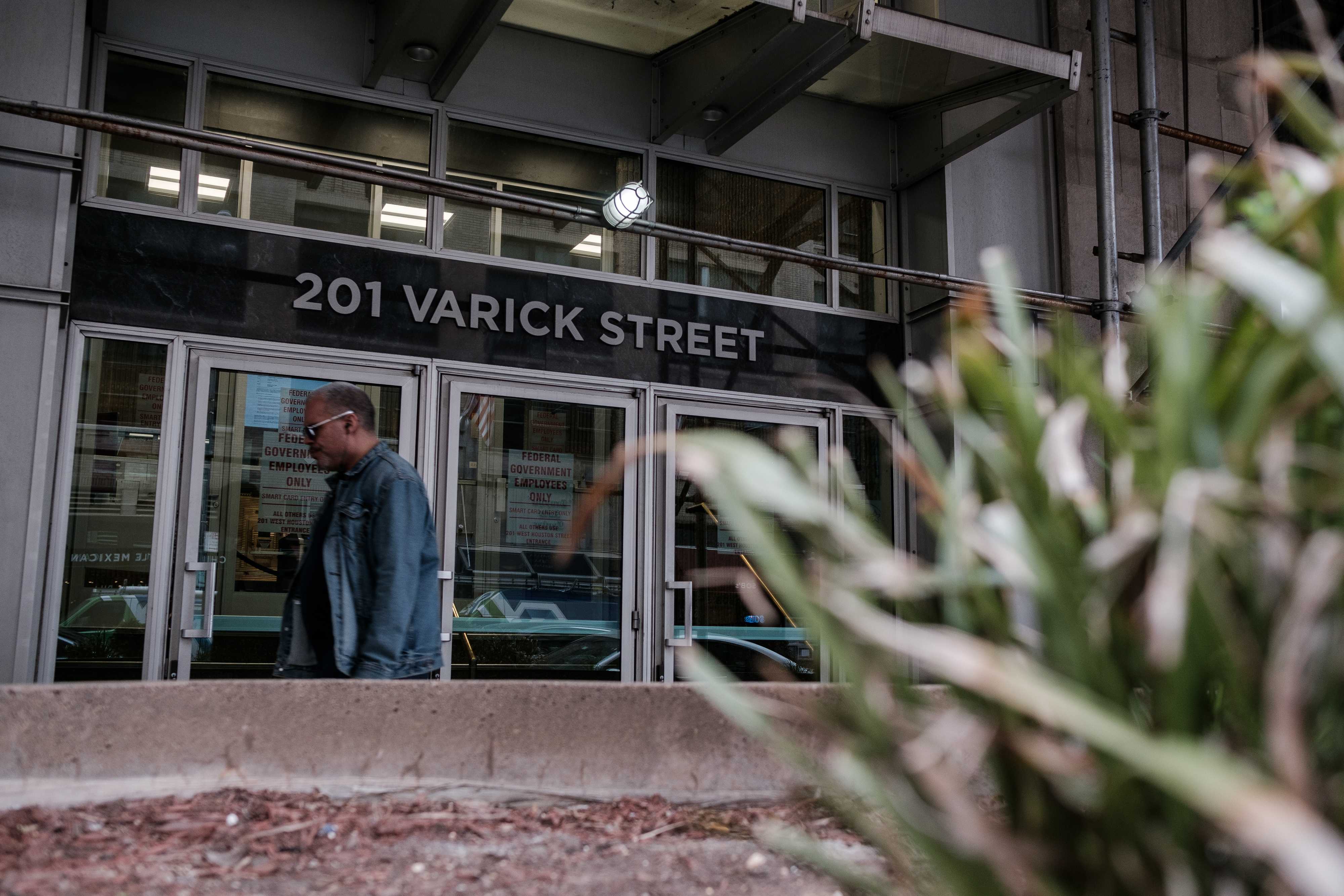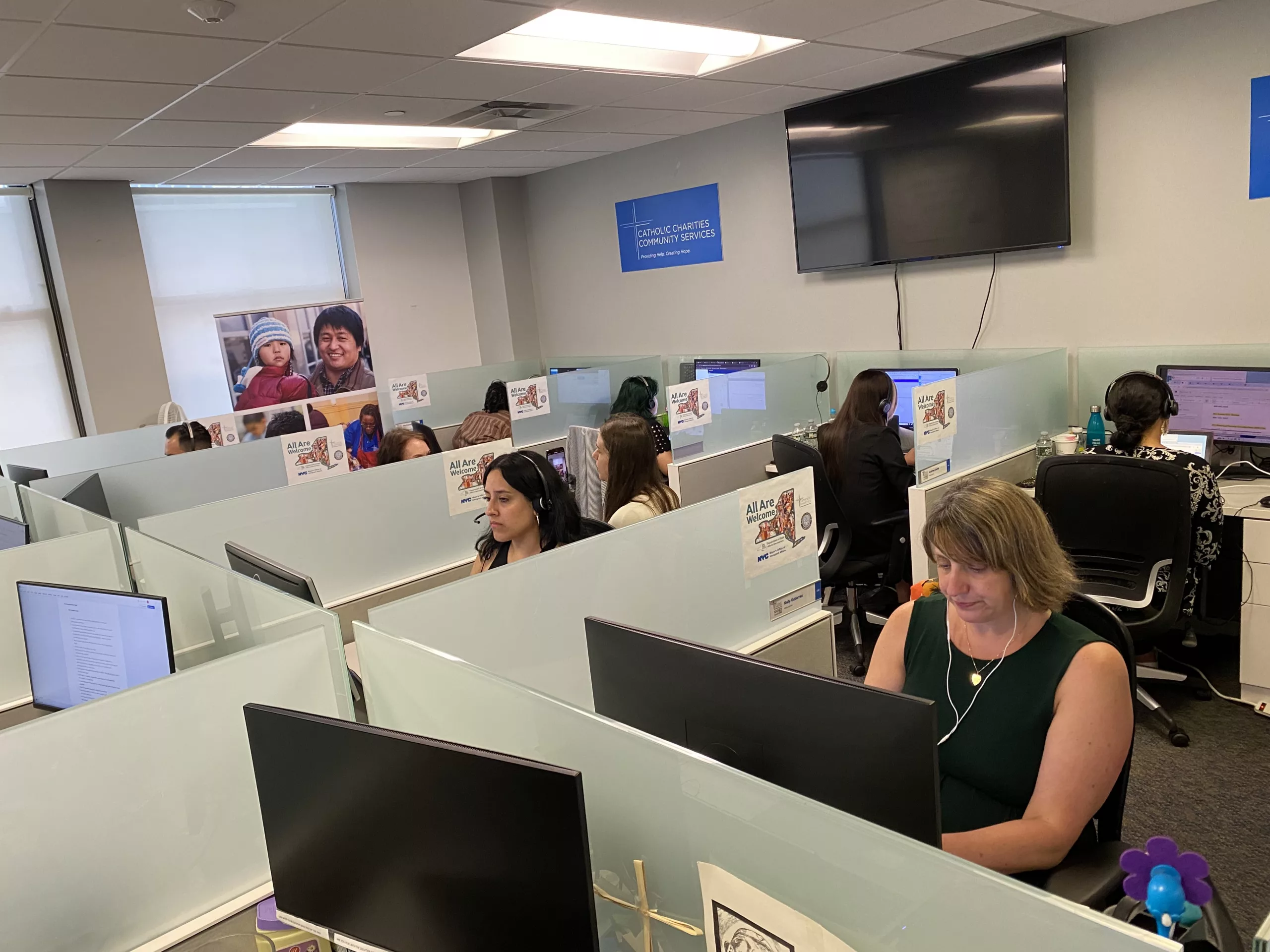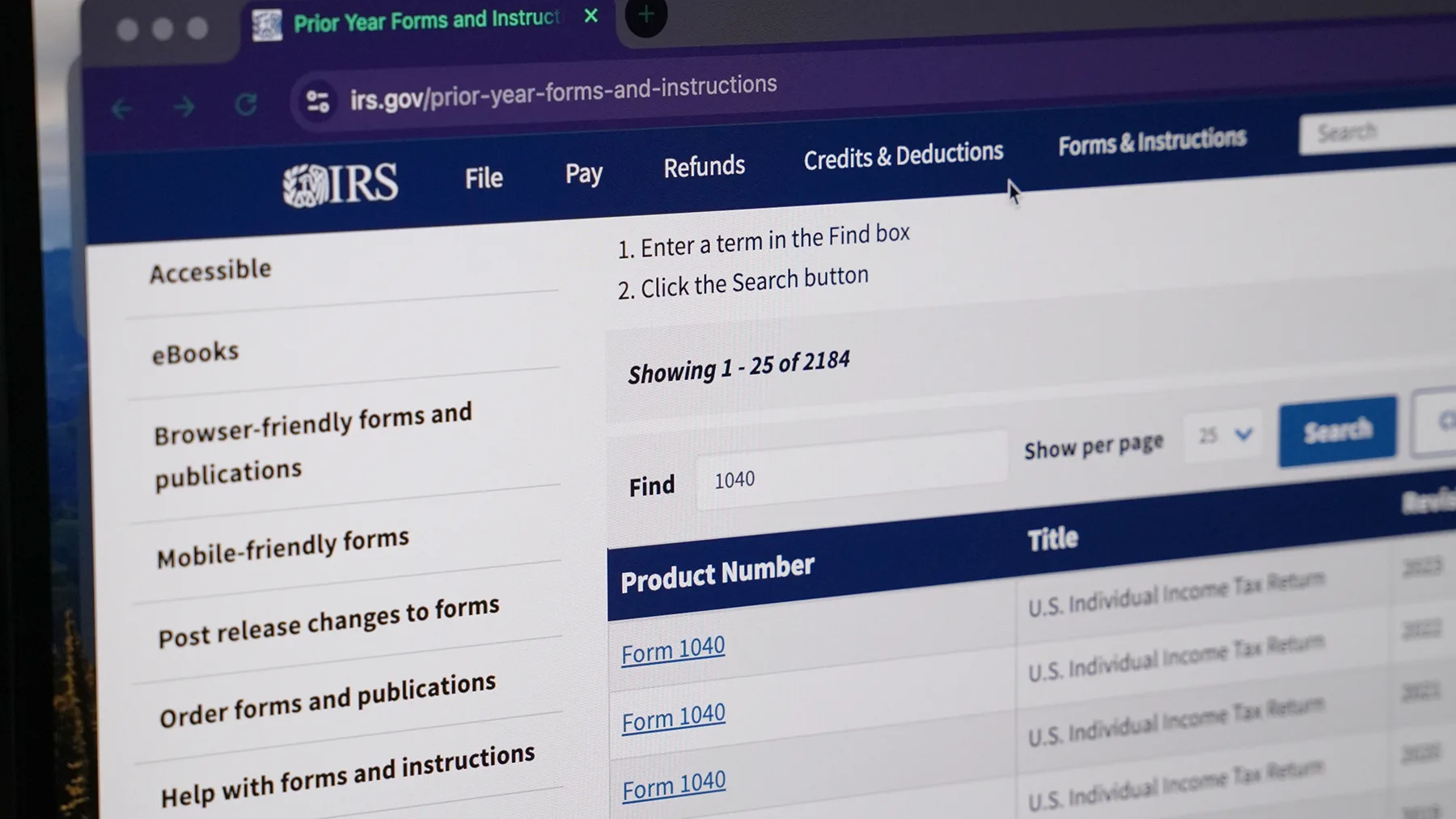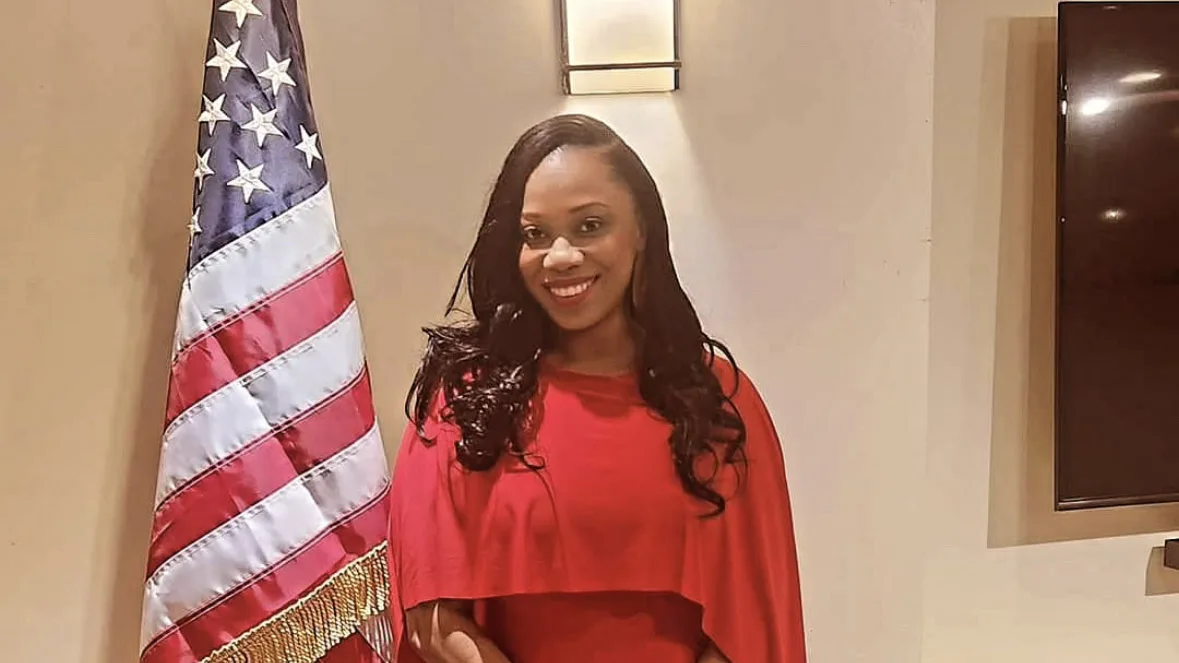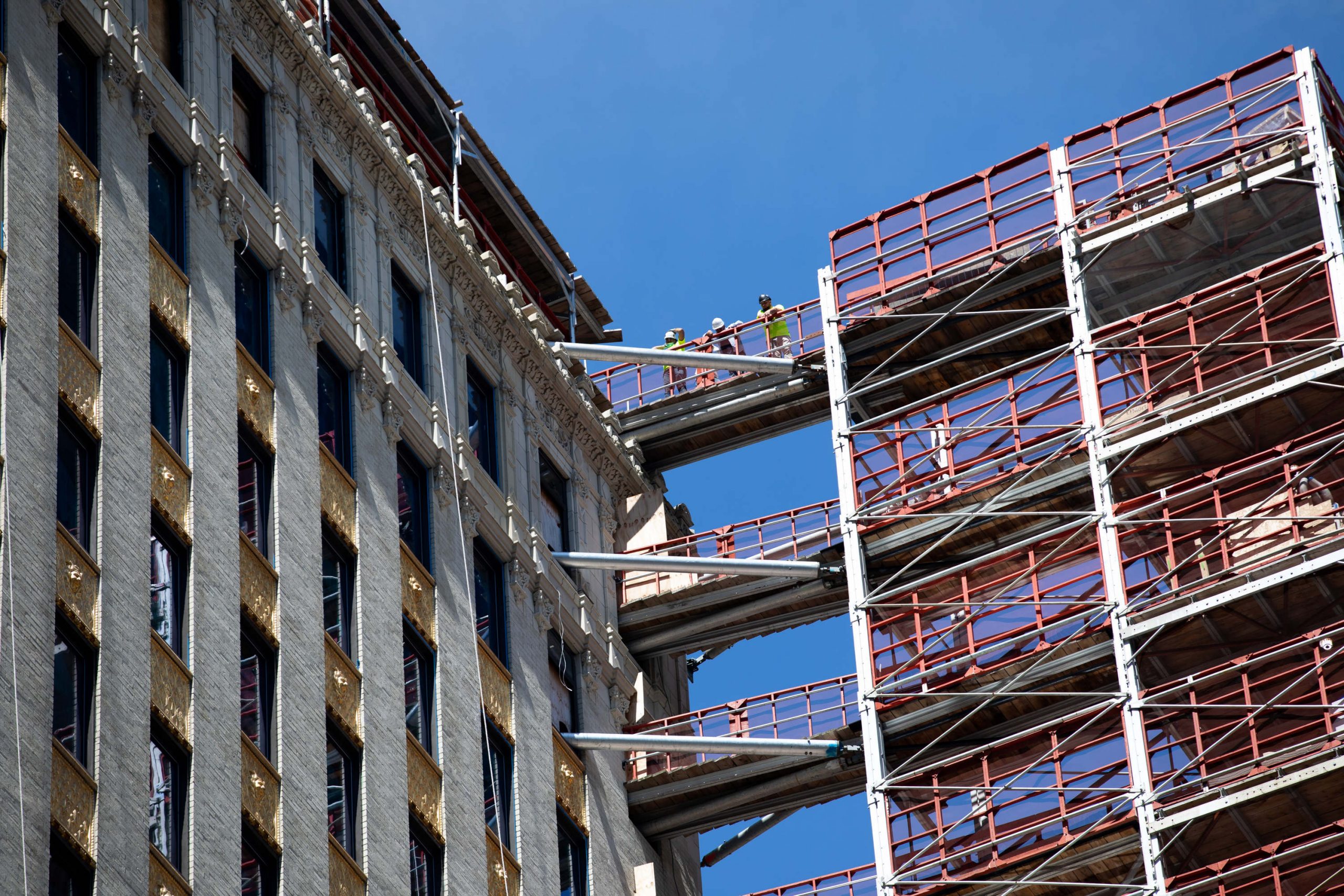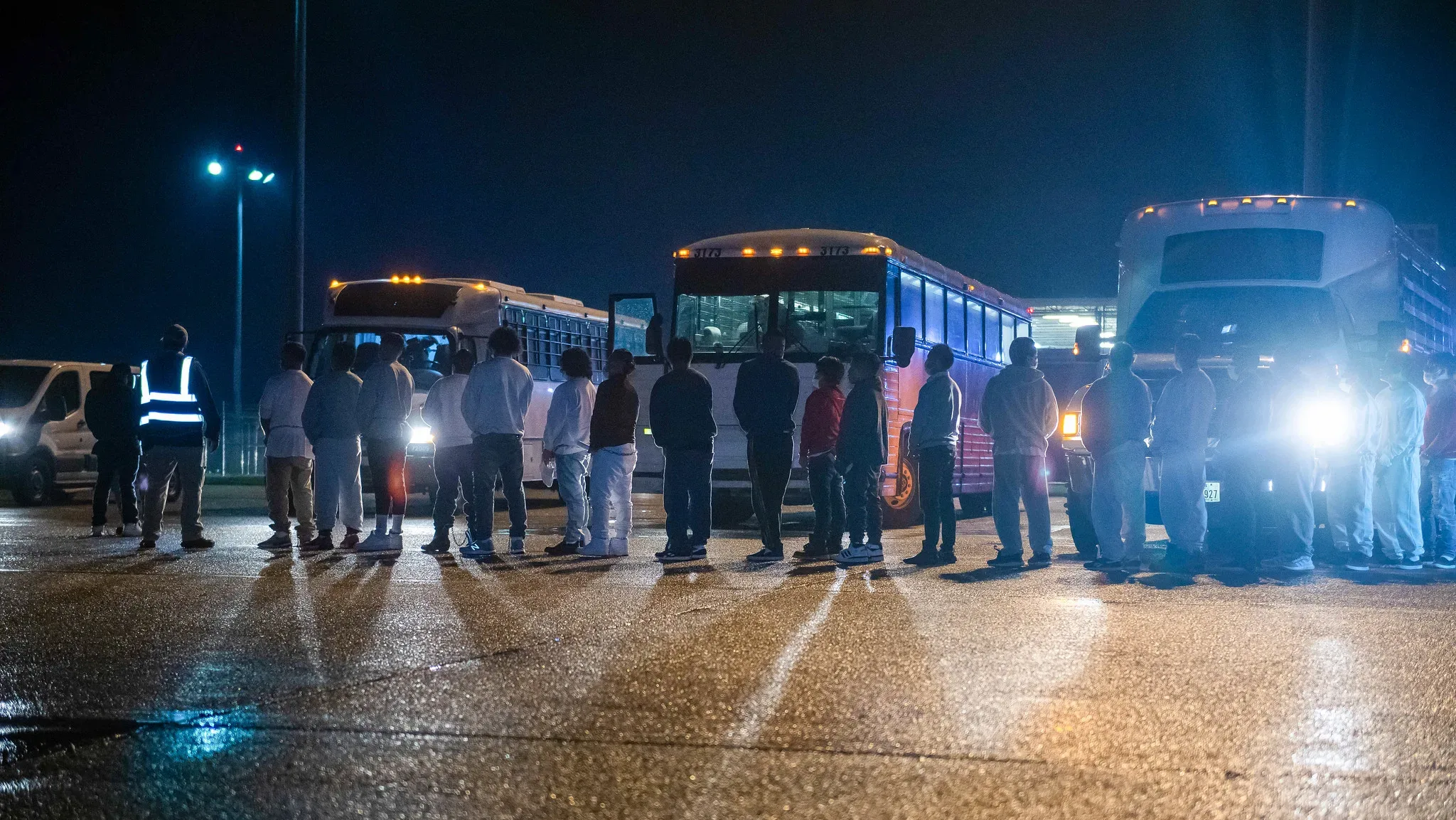UPDATE: Shortly after this story was published, the Executive Office of Immigration Review announced that it will be closing the Varick St. immigration court. The story has been updated to reflect that.
The Varick St. immigration court was closed after a court staffer tested positive for COVID-19, the Department of Justice announced late on Monday.
Earlier in the day, the National Association of Immigration Judges announced that a judge at the Varick St. immigration court had been diagnosed with pneumonia and had been tested for COVID-19. It is unclear if they are the same staffer who tested positive.
NAIJ had called for the immediate closure of the Varick St. immigration court in the wake of that news. The announcement also sparked fear among Immigration and Customs Enforcement prosecutors, according to their union representatives, who still have to attend hearings at the court for immigrants who are in detention.
“ICE attorneys are very distressed about having to continue working and doing in-person hearings at Varick St,” said Fanny Behar-Ostrow, president of AFGE Local 511, a union representing ICE attorneys, prior to the announcement of the court’s closure.
According to Behar-Ostrow, an ICE attorney at the Office of the Principal Legal Advisor in Newark, New Jersey also tested positive for COVID-19.
EOIR has come under intense pressure to close the immigration courts as the coronavirus has spread throughout the U.S. According to Gov. Andrew Cuomo there were 20,875 cases in New York State on Monday, accounting for just over half of cases nationwide, and five percent of cases globally. Despite several criminal courts being closed, immigration courts continue to hear cases for immigrants who are in detention.
The public health crisis unraveling in the U.S. has spurred an unprecedented alliance between ICE attorneys, immigration judges and immigration lawyers, who are all calling on the Justice Department, which oversees the nation’s immigration courts, to close the courts nationwide. They reiterated their calls for the closure of all courts in a statement released on Sunday.
Their pressure has led to the suspension of all non-detained hearings across the country. This means that 26 Federal Plaza has closed all of its hearings. But hearings for immigrants in detention at Batavia Immigration Court in Upstate New York, and Elizabeth Immigration Court in New Jersey are continuing.
Ginnine Fried, an ICE prosecutor in New York City and the eastern vice president of AFGE Local 511, said ICE attorneys were devastated that they were being compelled to go to court, placing their health at risk. In New York City, attorneys were granted the right to appear for hearings telephonically, but according to Fried, attorneys in Elizabeth, New Jersey can only appear telephonically from their offices, forcing them to commute.
“[EOIR] just wants to, no matter what, push forward with case completions at the cost of anything and everything,” Fried told Documented, speaking in her capacity as a union representative.
She said that the way the pandemic is handled will cause further damage to an already demoralized workforce. Due to the “crushing” caseloads that ICE attorneys have faced because of an increase in immigration enforcement, there had already been issues with turnover among ICE prosecutors, who are referred to as assistant chief counsel, Fried said. “What workforce do they think they’re going to come back to after all this is said and done?”
A letter from AFGE Local 511, NAIJ and the American Immigration Lawyers Association called on the Justice Department to close all 57 immigration courts across the country that remain open. 11 have been closed already. They argued that it is a health risk to pack people into immigration courts and goes against federal public health guidelines to limit gathering in groups.
In Upstate New York, lawyers hoping to have their hearings pushed back to a later date due to the crisis faced resistance from the courts.
According to Robert Elardo, executive director of the Volunteer Lawyers Project, one of their attorneys requested a new date for a hearing that was scheduled for Monday at the Batavia immigration court. ICE has prohibited attorneys from visiting detention centers without surgical masks and gloves, both of which are almost impossible to purchase due to a national shortage. The pandemic hampered the attorney’s preparation, Elardo explained.
On Wednesday, March 18, Judge Susan Aikman rejected the request for a new date, writing in the order, which was reviewed by Documented, “so far there has not been an outbreak here.” In a second rejection, following a separate motion, Aikman said, “If an outbreak occurs in Batavia before then, the court will reevaluate.”
Gov. Cuomo had called for all nonessential work in New York state to come to a halt starting Sunday evening. Elardo said it was irresponsible of decision-makers in Washington to allow the court to continue with hearings under those circumstances.
“What’s happening in Batavia is contrary to everything that we’re being told by the governor, the Center for Disease Control, by public health officials throughout the country and the world,” Elardo said.
EOIR did not respond to a request for comment at the time of publication.
Shutting down immigration courts is not without precedent. The courts were closed last year during the federal government shut down, caused by an impasse over funding to build a wall on the U.S.—Mexico border. The courts were shut down as attorneys were not considered an essential service.
